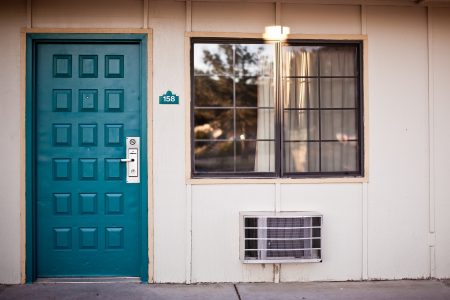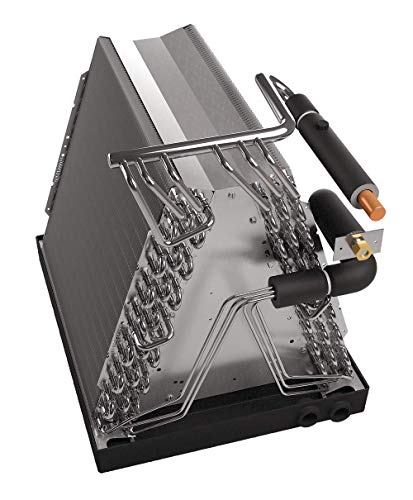Air conditioners are amazing. Only a few things beat that cool feel and premium comfort it gives. And this is the fundamental reason why finding out how to clean AC coils inside a house is important.
Sometimes your air conditioner stops working as efficiently as it used to or it stops working altogether.
This could be as a result of a problem with the coils of the air conditioner. Air conditioning coils are very important because when these coils get dirty it could cause damage to the air conditioner.
Table of Contents
Why Is It Necessary To Clean Air Conditioning (AC) Coils?
The following are reasons why it is necessary to clean air conditioning coils:
1. Air conditioning coils help in the transfer of heat around the air conditioner and to the environment too.
2. A dirty air conditioning coil can make the air conditoner unit to lose its cooling ability.
3. A dirty air conditioning coil can lead to the damage of other parts of the air conditioner system leading to expensive repairs or a replacement.
4. Dirty air conditioning coils can cause allergic reaction because of the inhalation of dust and dirt accumulated within it.
There are two main types of air conditioning coils. The Evaporator coils and the condenser coil. These two types of coils are made of copper and they play different roles in heat transfer.
The evaporator coils help to capture heat from the inside of your home while the condenser coils, on the other hand, release the heat that has been captured into the air around the outdoor unit of the air conditioner.
The way air conditioner coils are set up, the coil fins are usually close together. As it gets used over time, it is almost certain that dust and debris would build up. This affects the performance of your air conditioner.
The process of heat transfer definitely would not go on smoothly with dirty coils.
What happens when the evaporator coils are dirty?
When the evaporator coils are dirty, there will be:
1. decreased transfer of heat.
2. increased consumption of energy.
3. elevated pressure and temperature.
4. increased build up of ice on the coil.
5. reduced cooling capacity.
6. damage due to an increased wear on the system.
In a bid to constantly produce at its maximum, there would be an increase in the consumption of energy.
Dirty coils cause an increased workload on the air conditioner which would eventually lead to a shortening of the actual working span of this air conditioning system.
How to Clean AC Coils In The House
To start you would need to get entry into the unit. The access panel can be removed to expose the coils.
If you are having any struggles getting to the AC coils you can peruse the owner’s manual. Ensure the AC unit is off before you begin cleaning. Using a screwdriver, loosen the screws of the access panels.
How do you clean dirty AC coils?
You can clean dirty AC coils using the following:
1. Compressed air.
2. Brush.
3. Commercial cleaners.
4. Mild detergents and warm water.
5. Heavy duty chemicals and equipments.
Using Compressed Air
Compressed air is used when there is very little dirt on the coils. With a canister positioned in about 90 degrees you can blow off dirt from the air conditioning coil.
There should be a consistent flow of air into the coils for the best performance. This prevents the dirt from going further into the fins which would make it a lot harder to remove.
Since air is involved, it is best you protect your eyes from any dirt that could fly around.
Using A Brush
It is important that you use a soft brush. Hard brushes have the tendency to damage the fins of the coils.
To clean the AC coils, use the soft brush to gently scrub the coil to remove whatever dirt or debris is present.
Unlike when you use air, with the brush you clearly control the pressure at which you clean up the coil. Also, for tougher dirt, you can gently scrub the coils with the brush.
Using Commercial Cleaners
There are several commercial cleaners you can use to clean an AC unit. Your choice of commercial cleaners is dependent on your preference.
Make sure you follow the instructions strictly. Apply the cleaner on the AC coils and wipe clean until your AC coil is dirt free.
Using Mild Detergents And Warm Water
You can use a mild detergent and warm water to clean the AC coils. This mixture of detergent and warm water should be put in a spray bottle and sprayed on the coils.
Allow the mixture to soak for a few minutes. Soaking helps to loosen the materials that would have gotten stuck on the coils. After that, you can use a soft brush to remove the dirt.
Check out these interesting articles from our previous post:
- How to Clean A Water Pipe
- How to Get Commercial Cleaning Contracts
- How to Clean A Toilet Tank Mold
- How to Clean A Floor Drain In The Basement
- How to Clean Polypropylene Rug
- How to Clean A Memory Foam Mattress
Heavy-Duty Cleaning
Heavy-duty cleaning becomes a necessity when there is a lot of dirt on the air conditioning coils.
In this case, compressed air, brushes, or the water detergent mixture would not work. A lot of cleaning needs to be done with the use of high-level chemicals and equipment.
We recommend that you employ the services of professionals to do this heavy cleaning. You’ll know that your AC coils need heavy-duty cleaning if you have done what you can and the coils still look dirty.
In conclusion, air conditioning coils should be checked regularly and cleaned as soon as an accumulation of dirt is noticed.
How to Clean AC Coils Inside A House – Related FAQs
How Often Should AC Coils Be Cleaned?
AC coils should be cleaned twice a year. Cleaning AC coils once a year is enough for some AC units. During such maintenance routines, AC coils can be cleaned to remove large dirt or debris. The coils should be rinsed using a hose. This should be done when the power has been switched off.
It is important to clean AC coils routinely for optimum performance. Dirty AC coils can increase the energy consumption of the air conditioner by 30% and more. Also, this reduced energy efficiency causes other problems like compressor overheat, frozen evaporator coils, and poor cooling effect.
Getting a professional to clean your AC coils is recommended because of its delicate nature.
What Are The Symptoms Of A Dirty Evaporator Coil?
The following are symptoms of a dirty evaporator coil:
1. Air conditioner doesn’t turn on.
2. Air coming out from the air conditioner vents is warm.
3. Hearing unusual noises such as hissing or banging sounds from the cooling system.
4. Air conditioner unit starts and stops always without cooling your home properly.
5. Leaking refrigerant close to the cooling system parts within the air conditioner.
When you notice any of these signs from your air conditioner system, do a routine clean up. It is most likely that there is accumulation of dirt in the evaporator coil. This should be done immediately it is noticed so that it does not damage the evaporator coils permanently.
What Is Dirty Sock Syndrome?
Dirty sock syndrome is a characteristic smell of decomposing organic material in the air conditioner evaporator coils. This smells like a collection of dirty socks.
Dirty sock syndrome is caused by build-up of bacteria and mold on the AC evaporator coil. It is also caused by the accumulation of dust particles in the air conditioner due to insufficient filtration.
If you identify this smell, check your air conditioner unit for signs of rust or damage. Also check the drainage pans. Empty the pans if they are full and clear any blockage. This is a potential spot for mildew and mold growth.
How Long Should An Evaporator Coil Last?
An evaporator coil should last for 10-15 years if the compressor is maintained and serviced. Replace the evaporator coil and compressor when due. Always make sure they are properly matched for efficient cooling. This can lead to corrosion within the unit.
Servicing the evaporator coil improperly can pierce through the tubing. In this case, replacement is necessary to get the evaporator coil running optimally. A major consequence of a pierced evaporator coil is leakage of refrigerant, thereby making your air conditioner non-functional.
How Do You Clean Mold Out Of Air Conditioner Coils?
The following are steps to take to clean mold out of air conditioner coils:
1. Clean the air conditioner coils once or twice a year.
2. Gently vacuum the air conditioner coils or use a soft brush.
3. Clean the air conditioner coils with pressurized water and an alkaline cleaner.
4. Apply a mold inhibitor to the air conditioner coils and their surroundings to prevent regrowth of mold.
5. Apply an odor control to the HVAC unit that will make the air conditioner and the office/home smell nice.
Why Is Your Air Conditioner Running But Not Cooling The House?
Here are reasons why your air conditioner is running but not cooling the house:
- Thermostat is switched on. If the thermostat power button is turned on, the blower runs constantly, causing warm air to blow in from the vents.
- Dirty air filter. This reduces airflow in the air conditioning system.
- Dirty condenser. An accumulation of dirt or debris in the condenser will retain heat within the unit instead of being expelled out of your home.
- The circuit breaker is tripped.
- A leaking refrigerant.
Common signs of leaking refrigerant are ice buildup in the outdoor unit, warm air from vents, and bubbling or hissing sound near your AC.
Why Do AC Coils Get Dirty?
AC coils get dirty while cooling the refrigerant. Dirt and dust from air outside the room are absorbed in the cooling unit outside, consequently accumulating in the AC coils.
So, the constant movement of air from outside to the AC coils inside makes it get dirty.
The more dirt builds up there, it becomes hard for the air conditioning system to function properly. If the air conditioning condenser coils get too ladened with dirt and dust, they won’t be able to convert the hot refrigerant gas to liquid.



